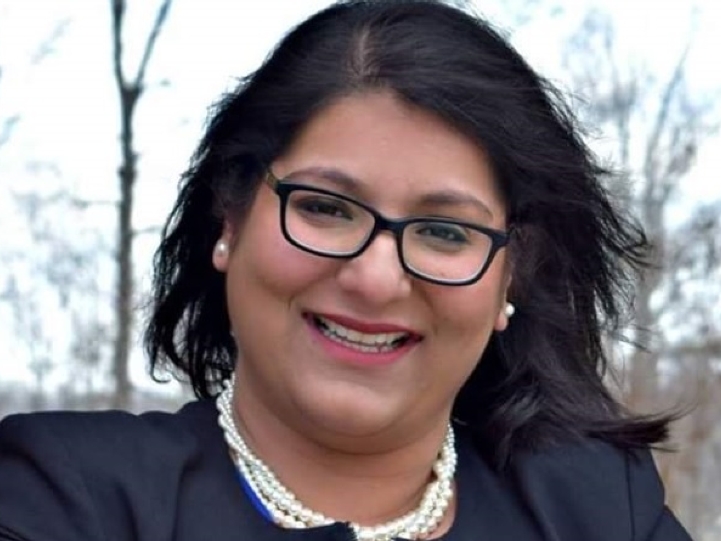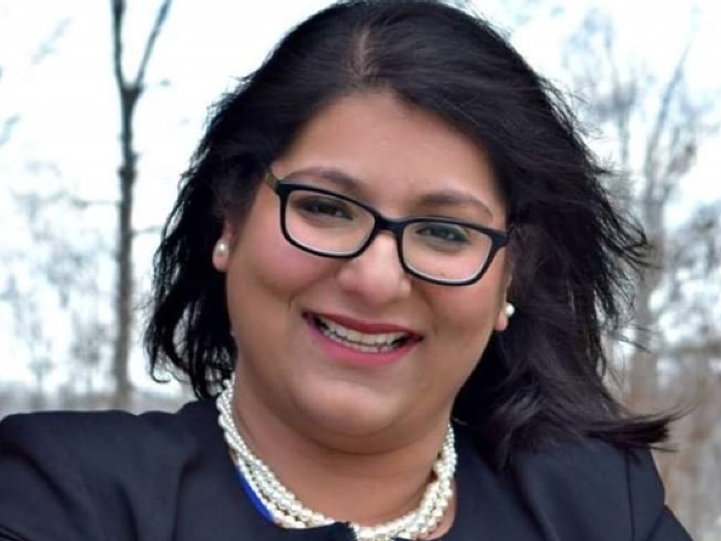
RSSI Research Positionality as aatma da kaam (Soul Work) for Critical Religious Pluralists
Equity, Inclusion and Social Justice Equity, Inclusion, and Social Justice Division Gender and Sexuality Spirituality and Religion in Higher Education Faculty
December 1, 2022
JCC Connexions, Vol. 9, No. 1, February 2023
Critical Religious Studies in Higher Education: An Ongoing Column in JCC Connexions
I recently defended my dissertation, a qualitative case study exploring the question of how existential worldview diversity infrastructure (EWDI) emerged in higher education at one public and one private university. Guided by Small’s (2020) critical religious pluralism theory (CRPT), I stepped forward to “claim [my] rightful place in this work” as a minoritized scholar-practitioner to advance “the work toward social transformation” (p. 69). Small’s (2022) column in JCC Connexions  stressed the importance of authors’ disclosure of their RSSIs in research positionality statements to aid readers in understanding their inherent biases and to facilitate the process of centering marginalized voices. However, through my dissertation research, I have evolved to understand that there is more to disclosing one’s positionality for a minoritized scholar and researcher than simply claiming a rightful place in this work, especially for women of color scholar-practitioners. In fact, in this blog post, I discuss the challenges I faced in claiming my rightful place in this work given my positionality as a Brown Punjabi-Sikh immigrant American woman of color and critical religious pluralist. In particular, I discuss how, in order to claim our rightful place, other women of color scholar-practitioners and I from minoritized worldview identities consider our positionality in this work as aatma da kaam (Gill, 2022) or soul-work.
stressed the importance of authors’ disclosure of their RSSIs in research positionality statements to aid readers in understanding their inherent biases and to facilitate the process of centering marginalized voices. However, through my dissertation research, I have evolved to understand that there is more to disclosing one’s positionality for a minoritized scholar and researcher than simply claiming a rightful place in this work, especially for women of color scholar-practitioners. In fact, in this blog post, I discuss the challenges I faced in claiming my rightful place in this work given my positionality as a Brown Punjabi-Sikh immigrant American woman of color and critical religious pluralist. In particular, I discuss how, in order to claim our rightful place, other women of color scholar-practitioners and I from minoritized worldview identities consider our positionality in this work as aatma da kaam (Gill, 2022) or soul-work.
Existing literature by women of color researchers has informed me that I should consider how to protect my mental health and wellbeing as a brown Sikh woman of color, graduate student researcher. Weems (2013) described how “educational spaces are saturated with ‘histories of hurt’ as well as interpersonal and institutional relations of power,” and that this is “especially true for historically colonized, minoritized, and marginalized students based upon their nationality, race, gender, sexual orientation, class, or ability, among other characteristics” (p. 53).
As such, I utilized a constructivist theoretical perspective (Lincoln & Guba, 2000) because it allowed me to exercise extreme caution around whiteness and Christonormativity given these “histories of hurt” at historically white colleges and universities, including those where my research was conducted. A constructivist theoretical perspective allowed me to co-construct a deeper understanding with participants on the topic of inquiry and maintain how critical theories informed and shaped the focus of my study (Jones, et. al, 2014; Creswell, 2013; Bhattacharya, 2017).
It also allowed me to exercise the extreme caution I deemed necessary around whiteness and Christonormativity to achieve the constructivist outcome of “a deeper understanding” on the topic of inquiry by “uncovering aspects that have been hidden” (Jones, et al., 2014, p. 17). Grounding my study in a constructivist theoretical perspective allowed me to adjust my reactions and watch my tone, because “even before we speak, women of color are positioned as potential aggressors” (Hamad, 2020, p. 15). If I attempt to assert or defend an entirely critical theoretical perspective while conducting research, no matter how soft spoken I am, I fear being branded an “Angry Brown Woman.”
The “Angry Brown woman” and “Angry Black woman” are both harmful archetypes and tools which function to gaslight women of color about their lived experiences with racism and sexism (Hamad, 2020). The very existence of these harmful archetypes “should be a warning sign that women of color are living their entire lives on the wrong end of a lopsided, controlling relationship with whiteness” (p. 50). This fear and the need to exercise caution around whiteness as a researcher did not mean that I kept myself at arm’s length or divorced myself from my case study. Quite the contrary, existing literature by women of color scholar-practitioners provided me with the wisdom necessary to understand the “interpersonal and institutional relations of power” (Weems, 2013, p. 53) in educational spaces and how they might influence my ability to “claim [my] rightful place” (Small, 2020, p. 69). In this way, critical theories informed my decision to ground my researcher positionality in a constructivist theoretical perspective, rather than the entirely critical theoretical perspective of CRPT.
There were many benefits and risks to conducting my case study, given my positionality as a brown Punjabi Sikh immigrant American woman. Women of color scholars such as Gill (2022) put forth the conception of the Punjabi term, aatma da kaam—soul work—which she defined as the labor that unapologetically resists and counters “soul wounding” (Sethi, 2021) and “spirit murdering” (Love, 2019; Williams, 1987). Religion and soul work are not interchangeable (Gill, 2022, p. 5). The conceptualizations of spirit work and soul work by women of color scholar-practitioners (Dillard, 2022; Gill, 2022; Love, 2019; Sethi, 2021; Williams, 1987) explicitly center the work of affirmation and humanization of individuals and groups across religious and racial identities. As Dillard (2022) claimed in her book titled The Spirit of Our Work: Black Women Teachers (Re)member:
When we think about spirituality and its relationship to education, we often substitute religion or religious practices for spirituality. I am arguing here not against religion but for a spirituality that is more expansive than religion, which allows and supports the integration, inclusion, and understanding of aspects of life that affirm our humanity and provide guidance and wisdom. (Dillard, 2022, p. 62).
In this way, laying claim to my rightful place as an RSSI scholar-practitioner meant countering and resisting the harms I might be exposed to in working toward a more pluralistic society. It meant understanding my research as aatma da kaam, as my soul work.
References
Bhattacharya, K. (2017). Fundamentals of qualitative research: A practical guide. Routledge/Taylor & Francis Group.https://doi.org/10.4324/9781315231747
Creswell, J. W. (2013). Qualitative inquiry & research design: Choosing among five approaches. Third Edition. Sage.
Dillard, C. (2022). The spirit of our work: Black women teachers (re)member. Beacon Press.
Gill, V. (2022). Intersectional(ity) pedagogy: Conceptualizing soul work toward solidarity and resistance. The Educational Forum, 86(4), 382-395. https://doi.org/10.1080/00131725.2022.2101826
Hamad, R. (2020). White tears/Brown scars: How white feminism betrays women of color. Catapult.
Jones, S.R., Torres, V., & Arminio, J.L. (2014). Negotiating the complexities of qualitative research in higher education: Fundamental elements and issues. Routledge.
Lincoln, Y. S., & Guba, E. G. (2000). Paradigmatic controversies, contradictions, and emerging confluences. In N. K. Denzin & Y. S. Lincoln (Eds.), Handbook of qualitative research (2nd ed., pp. 163–188). Sage.
Love, B. (2019). We want to do more than survive: Abolitionist teaching and the pursuit of educational freedom. Beacon Press.
Sethi, G. (2021). Unbelonging. Mango & Marigold Press.
Small, J. L. (2020). Critical religious pluralism in higher education: A social justice framework to support religious diversity. Routledge.
Small, J. L. (2022). The importance of sharing RSSI positionality in research. https://www.naspa.org/blog/the-importance-of-sharing-rssi-positionality-in-research
Weems, L. (2013). Guerilla-pedagogy: On the importance of surprise and responsibility in education. Philosophical Studies in Education, 44, 50-59
Williams, P. (1987). Spirit-murdering the messenger: The discourse of fingerpointing as law’s response to racism. University of Miami Law Review, 42(1), 127–157.